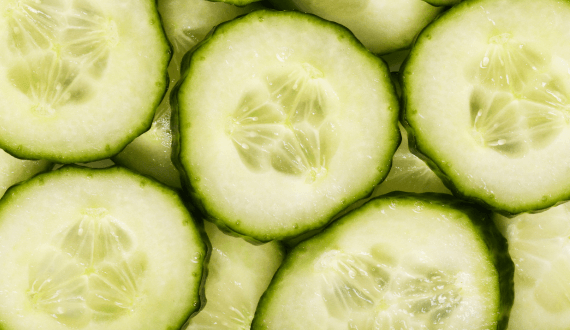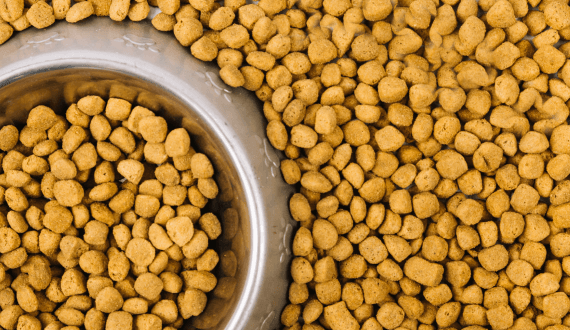Can dogs eat citrus fruit?

Dogs and people: similarities and differences
Despite the popular belief that hedonism is not inherent in dogs, most owners would disagree with that statement. Dogs don't just like to eat, they also have their own taste preferences. It is true that often their ideas of "beauty" are very different from the owners' vision. And this is not surprising, given the fact that a normal adult human has about 9,000 taste buds, while dogs have about 1700. Therefore, the main role is assigned to the sense of smell, which is many times superior to that of humans: 125 million sensory glands in a dog versus 5-10 million1 in humans. This is why the smell of the product plays a much greater role than its taste.

"Eat a lemon," or all about the benefits of citrus fruits
Since the majority of dogs living under the same roof as humans are to some extent omnivores, it is not surprising that they are so attracted to the fragrant citrus fruits, which are quite often on the table, and owners are wondering how harmless to occasionally pamper a pet with a juicy orange or grapefruit. Especially since we all know from childhood that these fruits are a treasure trove of vitamins, nutrients, micro- and macronutrients, potentially beneficial to the human immune system. Almost all citrus fruits are famous for their antioxidant, anti-inflammatory and immunomodulatory properties. Each of us has probably at least once in his life received the advice to "eat a lemon" when having a cold or flu, and everyone at least once appreciated this advice, because, in fact, lemon is a fresh vitamin C. The owners' desire to please their pet with a juicy and seemingly healthy treat is understandable. But it's important to remember that not always what's good for humans is good for their four-legged friend.

Dogs and citrus fruits
In addition to all these advantages, citrus fruits are rich in essential oils, the use of which can cause poisoning to the animal. Also do not forget about the high content of acids, which are quite aggressive in the already acidic stomach environment, stimulate additional production of gastric juice, generating discomfort, especially in dogs with a sensitive digestive tract. Absolutely all citrus fruits have a pronounced choleretic effect, and can also cause severe vomiting and diarrhea in the dog, leading to dehydration. If you have previously observed similar problems, such food experiments can be fatal, causing disruption of organs, including the pancreas. In this case, immediate assistance from a veterinary specialist may be required, with the prognosis of treatment results given with extreme caution, depending on the severity of symptoms and the degree of inflammation of the pancreas glandular tissues.
If your pet has been previously diagnosed with hormonal disorders, diabetes or obesity, introduction to citrus is strictly not recommended.
Among other things, all citrus fruits are quite a serious allergen, and it is almost impossible to check in advance how the dog's body will react to the fruit. Citrus peels have a particularly high concentration of esters, oils and other substances that are powerful allergens, so they easily irritate the mucous membranes in the nose and mouth of the dog. Most often allergic reactions occur in puppies, as their immune system is not yet strong enough to resist external adverse factors. In addition, dogs under one year of age may mistake a fragrant lemon or orange for a toy, take a bite, or eat it whole while playing.
If you own a dog whose breed is prone to allergic reactions (for example, a Labrador, Yorkshire terrier, bulldog, Chihuahua), it is better not to experiment with citrus at all.
Also, do not forget about the treatment of fruit for transport and preservation of substances that may be unsafe for animals and cause poisoning of the body.

What to do if the dog had too much citrus
One or two mandarin slices probably won't hurt your pet, but even so, we don't recommend such experiments with pets and we don't see a pressing need to introduce them to the diet. If your pet accidentally had enough citrus fruits, monitor his condition closely during the first hours and all day long; if symptoms of allergic reactions or other ailments appear, consult your veterinarian immediately to avoid serious negative consequences. The main symptoms of citrus poisoning in dogs are copious vomiting and diarrhea.


Is there an alternative?
If you are a natural nutritionist or just like to pamper your four-legged family member with foods from the common table, you should consider the safer fruit and vegetables. He will eat apples without peels or seeds, cucumbers or some kinds of berries with just as much pleasure and without any danger to his health.
And in order to ensure that the dog gets all the necessary vitamins with food, and his diet meets all the needs of a healthy body, use ready-made full-feed industrial feeds super-premium class, which do not require additional input into the diet of fruit and vegetables. Or work with a veterinary nutritionist to create a menu of natural foods based on your dog's health indicators.
Consult a veterinaty therapist or veterinary nutritionist before giving your dog any food from the human diet.
And remember, good nutrition is the key to a long, healthy and happy life for your pet!
_____________________________________________
¹ Vollmerhaus, B., Frevein, J., Anatomy of a dog and a cat 2nd ed.



